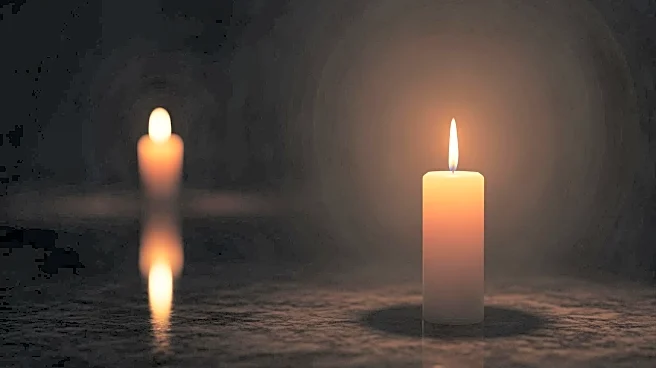What's Happening?
Michael Smuss, a Holocaust survivor and a key figure in the Warsaw Ghetto Uprising, has died at the age of 99. Smuss was part of the Jewish resistance during World War II, actively participating in the uprising
against Nazi forces. He was known for his bravery, throwing Molotov cocktails at Nazi soldiers from the rooftops of the ghetto. The uprising lasted nearly a month, and Smuss was one of the few resistance fighters who survived the intense battle. His contributions to the resistance are remembered as a significant part of Jewish history during the Holocaust.
Why It's Important?
The passing of Michael Smuss marks the loss of a direct link to the historical events of the Holocaust and the Warsaw Ghetto Uprising. His actions during the uprising symbolize the courage and resilience of those who fought against oppression during one of history's darkest periods. Smuss's story serves as a reminder of the atrocities faced by Jewish communities and the importance of remembering and honoring those who stood against tyranny. His legacy continues to inspire future generations to uphold the values of freedom and justice.
What's Next?
As the number of Holocaust survivors dwindles, efforts to preserve their stories and educate future generations about the Holocaust become increasingly crucial. Organizations dedicated to Holocaust education may focus on documenting and sharing the experiences of survivors like Smuss to ensure their stories are not forgotten. Additionally, commemorative events and educational programs may be organized to honor Smuss's contributions and the broader history of the Warsaw Ghetto Uprising.
Beyond the Headlines
The story of Michael Smuss highlights the ethical and cultural importance of preserving historical narratives. It underscores the need for continued dialogue about the Holocaust and its impact on contemporary society. As survivors pass away, there is a growing responsibility to maintain their stories and ensure that the lessons of history are not lost. This involves addressing issues of anti-Semitism and promoting tolerance and understanding across different cultures and communities.









